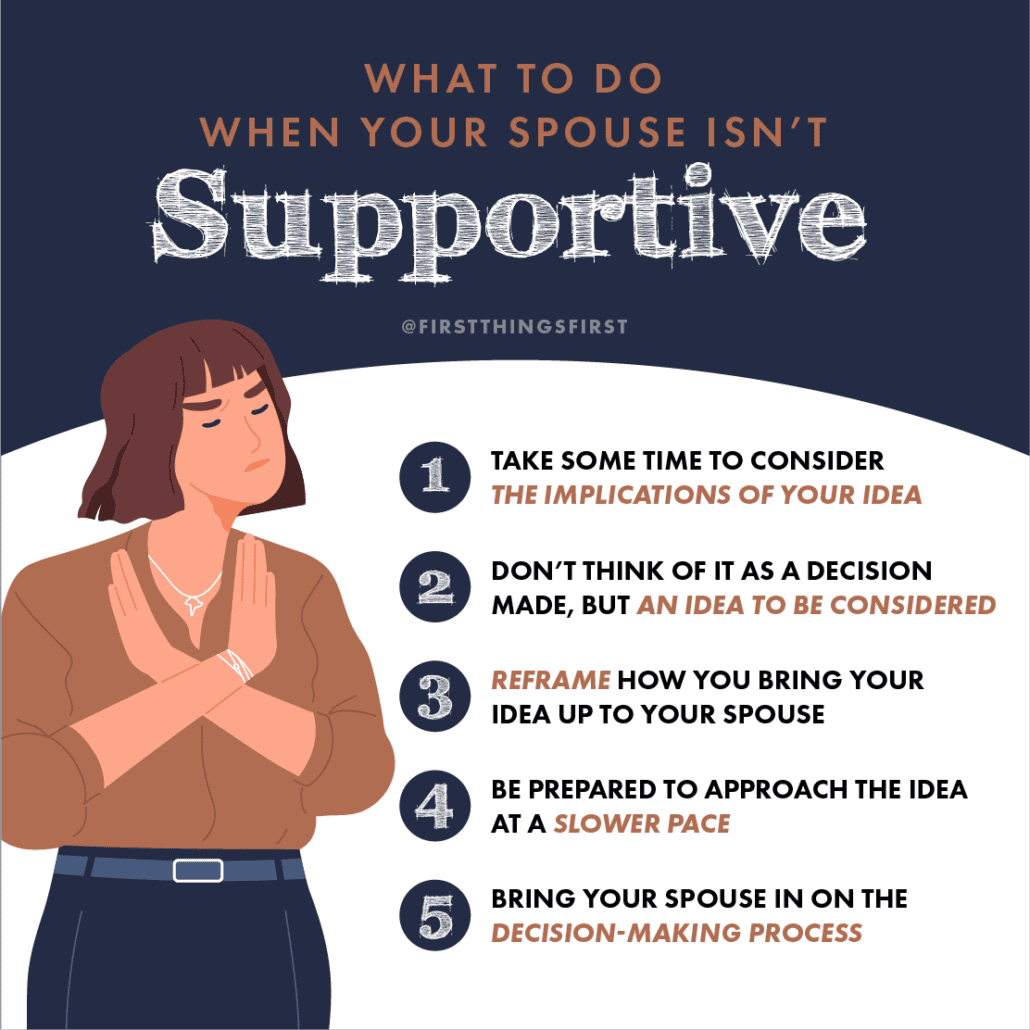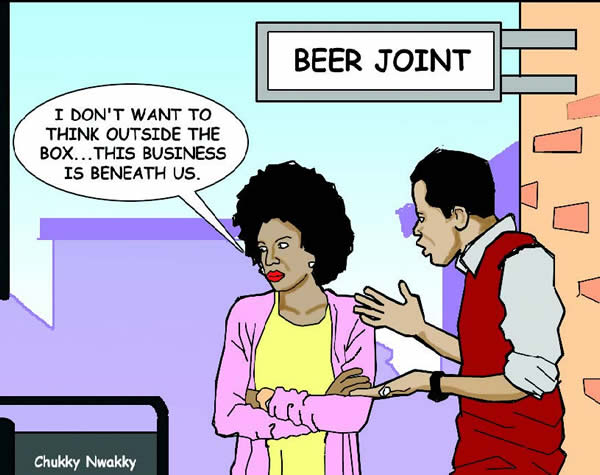
Have you ever found yourself wondering why your partner doesn’t seem to be on board with your career aspirations or hobbies? It can be disheartening to feel unsupported in your pursuits, but understanding the underlying reasons behind this lack of support is essential in finding a resolution. In this article, we will explore some common factors that may contribute to this situation and offer guidance on how to navigate through it. So, if you’ve been grappling with this issue, fret not because we’ve got your back! Let’s dive right in and shed some light on this perplexing question.
1. Lack of Understanding
1.1 Lack of awareness about the importance of your career or hobbies
Sometimes, your partner may not fully grasp the significance of your career or hobbies. They might not understand the level of passion and fulfillment these activities bring to your life. This lack of awareness can stem from a variety of reasons. Perhaps they have never been exposed to a similar career path or have never pursued hobbies themselves. It’s important to remember that not everyone shares the same interests or priorities, and it may take some time and effort to help your partner understand why your career or hobbies are important to you.
1.2 Different perspectives and priorities
Another reason for your partner’s lack of support could be the differences in perspectives and priorities. Each individual has their own unique set of values, goals, and ambitions. Your partner might prioritize other aspects of life, such as family, relationships, or personal pursuits. They may struggle to comprehend why your career or hobbies take up so much of your time and energy. It’s crucial to have open and honest conversations to understand each other’s perspectives and find a balance that works for both of you.
1.3 Communication gaps
Communication gaps can also contribute to the lack of understanding and support in your relationship. If you fail to effectively communicate your passion, goals, and ambitions to your partner, they may not fully comprehend the significance of your career or hobbies. Similarly, if your partner struggles to express their concerns or reservations about your choices, it can hinder supportive communication. It’s essential to practice active listening, empathy, and effective communication skills to bridge these gaps and foster a deeper understanding of each other’s needs and aspirations.
2. Insecurity and Fear
2.1 Feeling threatened by your success
One possible reason for your partner’s lack of support could be their own insecurities or feelings of inadequacy. Seeing you excel in your career or hobbies might trigger feelings of jealousy or fear that they are being left behind. They may worry that your success will create a power imbalance in the relationship or lead to a decrease in attention or affection towards them. It’s important to reassure your partner that their worth and importance in your life remain unchanged, and that your success does not diminish their own abilities or accomplishments.
2.2 Fear of losing you or the relationship
Another aspect of insecurity is the fear of losing you or the relationship. Your partner might worry that your career or hobbies will consume all your time and leave little room for them or the relationship. They might feel neglected or second best to your pursuits. It’s crucial to address these fears and reassure your partner that they are a priority in your life. Establishing boundaries and dedicating quality time for your relationship can help alleviate these concerns and foster a sense of security.
2.3 Inadequacy and comparison
Sometimes, your partner’s lack of support may stem from their own feelings of inadequacy. They might compare their own achievements or passions with yours and feel inferior. This can lead to a lack of enthusiasm or support for your endeavors. Encouraging your partner to explore their own interests and celebrating their accomplishments can help boost their self-esteem and create a more supportive dynamic in your relationship. It’s important to remember that supporting each other’s goals and aspirations can lead to mutual growth and fulfillment.

This image is property of firstthings.org.
3. Personal Baggage
3.1 Past experiences and traumas
Past experiences and traumas can significantly impact how your partner perceives and supports your career or hobbies. They might carry unresolved emotions or negative associations from their own past experiences related to similar pursuits. For example, if they had a failed career or experienced disappointment in their own hobbies, they might project their fears or reservations onto your choices. It’s vital to create a safe space for open dialogue where your partner feels comfortable sharing their past experiences and fears. Through understanding and empathy, you can work together to heal any wounds and foster a more supportive environment.
3.2 Unresolved issues or resentments
Unresolved issues or resentments within your relationship can also contribute to your partner’s lack of support for your career or hobbies. If there are underlying tensions or unresolved conflicts, they may manifest in unsupportive behavior or a lack of enthusiasm. It’s essential to address and work through these issues to create a healthier and more supportive dynamic. Seeking couples therapy or engaging in open and honest conversations can help identify and resolve any lingering resentments.
3.3 Cultural or societal expectations
Cultural or societal expectations can significantly influence how your partner perceives your career or hobbies. Certain cultures or societies may place greater value on traditional roles and expectations, which can lead to a lack of support for unconventional career paths or hobbies. Your partner might fear judgment or criticism from their family or peers, which deters their support. Encouraging open-mindedness and challenging societal norms together can help create a more supportive environment where both partners feel free to pursue their passions.
4. Lack of Supportive Relationship Dynamics
4.1 Power imbalances
Power imbalances within the relationship can hinder support for your career or hobbies. If one partner holds more control or decision-making authority, it may create a dynamic where their priorities and interests take precedence. This can lead to a lack of encouragement or appreciation for your pursuits. It’s essential to foster equality in the relationship and ensure both partners have a voice and influence. By valuing each other’s goals and aspirations, you can create a supportive dynamic that promotes mutual growth and fulfillment.
4.2 Control and possessiveness
Control and possessiveness can also contribute to a lack of support within the relationship. If your partner feels that your career or hobbies threaten their control or sense of ownership over you, they might discourage or undermine your pursuits. It’s crucial to establish healthy boundaries and assert your autonomy, while also maintaining open lines of communication and reassurance. Creating a sense of trust and security can help alleviate their fears and encourage a more supportive stance.
4.3 Lack of encouragement and appreciation
Sometimes, your partner’s lack of support may simply be rooted in a lack of encouragement or appreciation. They might not fully grasp the effort and dedication you put into your career or hobbies. Expressing your needs for support and acknowledgment can help your partner understand the importance of their role in your pursuit of fulfillment. It’s important to communicate your expectations and find ways to reciprocate appreciation and encouragement within the relationship.

This image is property of cdn.punchng.com.
5. Different Values and Interests
5.1 Misalignment of core values
Misalignment of core values can lead to a lack of support for your career or hobbies. If your partner’s values differ significantly from your own, it can be challenging for them to understand or appreciate your pursuits. For example, if they prioritize financial stability above personal fulfillment, they may struggle to support your career choices that may not guarantee immediate financial success. It’s crucial to have open and honest discussions about your values and find common ground or compromises that align with both partners’ needs and aspirations.
5.2 Conflicting interests and priorities
Conflicting interests and priorities can also hinder support within the relationship. Each partner brings their own set of interests and pursuits, and these may not always align perfectly. Your partner might struggle to prioritize your career or hobbies if they have their own passions that require attention and support. It’s vital to find a balance between pursuing individual interests and nurturing the relationship. By actively engaging in each other’s interests and finding ways to support and collaborate, you can foster a more supportive environment.
5.3 Insufficient effort to find common ground
Sometimes, the lack of support can simply be attributed to a lack of effort in finding common ground. If both partners fail to invest time and energy into understanding each other’s interests and finding shared activities or goals, it can create a disconnect and lack of support. Making a conscious effort to explore each other’s worlds, communicate openly, and create shared experiences can strengthen your bond and foster a more supportive environment.
6. Personal Ambitions and Jealousy
6.1 Individual ambitions overshadowing the relationship
Individual ambitions can sometimes overshadow the relationship, leading to a lack of support for your career or hobbies. If one partner’s goals and ambitions become the sole focus, it can create imbalance and neglect within the relationship. It’s important to find a healthy balance between personal and shared aspirations, ensuring that both partners feel supported and valued. Regular check-ins, goal-setting together, and finding ways to collaborate can help maintain a supportive dynamic.
6.2 Envy and resentment
Feelings of envy and resentment can arise when one partner perceives the other’s career or hobbies as more successful or fulfilling. Your partner might struggle with these emotions, leading to a lack of support. It’s essential to foster a culture of celebration and support within the relationship, acknowledging each other’s successes and finding ways to uplift and encourage one another. Openly addressing any feelings of envy or resentment can help diffuse these emotions and create a more supportive dynamic.
6.3 Unhealthy competition
Unhealthy competition between partners can also contribute to a lack of support. If both partners view each other as rivals rather than allies, it can create a toxic environment where support for each other’s career or hobbies is lacking. It’s important to shift the mindset from competing against each other to supporting and uplifting one another. Recognizing that both partners can thrive simultaneously and that success is not a zero-sum game can help foster a more supportive relationship.
This image is property of qph.cf2.quoracdn.net.
7. Lack of Balance in Relationship
7.1 Neglecting relationship needs
Neglecting relationship needs can lead to a lack of support for your career or hobbies. If the demands of your pursuits consume all your time and energy, it can create imbalance and neglect within the relationship. It’s important to prioritize quality time, emotional connection, and mutual support. Regularly assessing and addressing the needs of your relationship can help create a healthy balance where both partners feel supported.
7.2 Selfishness and lack of compromise
Selfishness and a lack of compromise can also hinder support within the relationship. If one partner consistently prioritizes their own needs and desires above the relationship, it can create a sense of neglect or resentment. It’s crucial to practice compromise, empathy, and understanding in order to create a supportive environment where both partners can thrive. Finding ways to support each other’s passions while also maintaining a strong bond can help achieve this balance.
7.3 Unrealistic expectations
Unrealistic expectations can strain the support within your relationship. If either partner has unrealistic expectations regarding the amount of time, energy, or success your career or hobbies should yield, it can lead to disappointment and a lack of support. It’s important to have open and honest conversations about your goals, limitations, and aspirations, ensuring that both partners have a realistic understanding of what to expect. Setting achievable expectations can help foster a supportive environment where both partners can thrive.
8. Mismatched Communication Styles
8.1 Differences in expressing and receiving support
Differences in expressing and receiving support can hinder a supportive stance from your partner. Each individual has unique communication preferences and styles. Your partner may not fully comprehend how to effectively express or provide support in a way that resonates with you. It’s important to have open and empathetic conversations about your needs and preferences, helping your partner understand how they can best support you. Finding common ground and learning to communicate effectively can strengthen your relationship and foster a more supportive environment.
8.2 Ineffective communication strategies
Ineffective communication strategies can further contribute to the lack of support within your relationship. If either partner struggles to articulate their thoughts, concerns, or needs, it can create a barrier to understanding and support. Learning and practicing effective communication skills, such as active listening, non-judgmental communication, and using “I” statements, can help bridge this gap. By creating a safe and open space for communication, you can enhance understanding and support within your relationship.
8.3 Emotional disconnect
Emotional disconnect can also contribute to the lack of support for your career or hobbies. If either partner feels emotionally disconnected or unheard, it can strain the support within the relationship. Creating opportunities for emotional intimacy and vulnerability can help strengthen your bond and foster a more supportive dynamic. Taking the time to understand each other’s emotional needs and actively working towards fulfilling them can create a more supportive and fulfilling relationship.
This image is property of qph.cf2.quoracdn.net.
9. External Influences
9.1 Social pressure and judgment
Social pressure and judgment can significantly impact your partner’s support for your career or hobbies. Society often imposes certain expectations and norms regarding what is considered respectable or valuable. If your pursuits deviate from these societal standards, your partner may fear judgment or criticism, leading to a lack of support. It’s important to challenge these norms together and create a safe space where both partners feel free to pursue their passions without external judgment.
9.2 Family or peer influence
Family or peer influence can also shape your partner’s support for your career or hobbies. If their family or peers hold traditional views or have different priorities, your partner may feel conflicted between their own desires and the expectations of their loved ones. It’s crucial to have open and empathetic conversations about these influences and work together to find a balance that respects both your desires and your partner’s relationships with their family and friends.
9.3 Financial concerns
Financial concerns can also impact your partner’s support for your career or hobbies. They may worry about the financial implications of your choices, especially if your pursuits are not immediately lucrative. Fear of instability or financial strain can lead to a lack of support. It’s important to have transparent discussions about finances, addressing any concerns or fears your partner may have. Together, you can find ways to balance financial responsibilities while still allowing room for pursuing your passions.
10. Resentment and Neglect
10.1 Accumulated resentment over time
Accumulated resentment over time can significantly impact your partner’s support for your career or hobbies. If your pursuits have consumed a significant amount of time or energy, your partner may feel neglected or emotionally distant. They might harbor resentment towards your career or hobbies, associating them with the loss of quality time or emotional connection. It’s crucial to address any accumulated resentment and work together to find ways to rebuild emotional intimacy and connection. Making a conscious effort to prioritize the relationship can help repair any perceived neglect.
10.2 Emotional neglect in the relationship
Emotional neglect within the relationship can also contribute to the lack of support for your career or hobbies. If either partner feels emotionally unheard or unseen, it can create a void that hinders support and enthusiasm. It’s important to make time for emotional connection, active listening, and validation within the relationship. Creating a safe and nurturing environment where both partners can express their emotions can help strengthen support and understanding.
10.3 Lack of effort to understand and support each other
Lastly, a lack of effort to understand and support each other can significantly impact the level of support within your relationship. Being actively involved and interested in your partner’s career or hobbies demonstrates your commitment to their happiness and fulfillment. Similarly, expressing your own interest and enthusiasm for their pursuits can encourage reciprocity in support. It’s essential to prioritize understanding and support within the relationship, making a consistent effort to learn about and participate in each other’s passions.
In conclusion, the lack of support for your career or hobbies from your partner can be attributed to various factors. Whether it’s a lack of understanding, personal insecurities, unresolved issues, or external influences, identifying and addressing the root causes is essential for creating a more supportive relationship. By fostering open communication, empathy, and shared goals, you can work towards a dynamic where both partners feel supported and encouraged in their pursuits of fulfillment and happiness. Remember that relationships require effort, compromise, and understanding to thrive, and supporting each other’s dreams and aspirations is an integral part of that journey.






